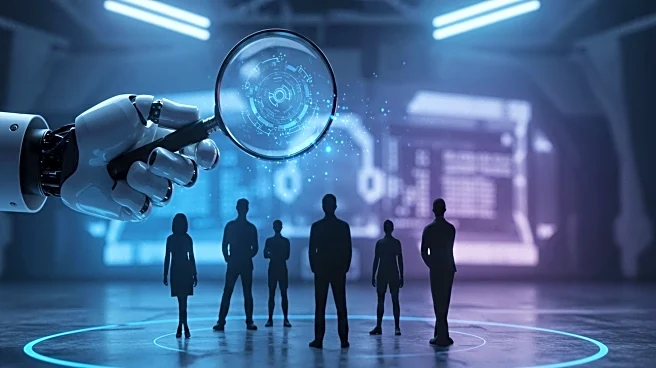What is the story about?
What's Happening?
TikTok is set to lay off hundreds of content moderators in the UK as part of a strategic shift towards AI-driven moderation. The company plans to relocate work to other European offices, enhancing its Trust and Safety operations through artificial intelligence. This move is part of a reorganization initiated last year to streamline global operations. TikTok claims that AI will maximize effectiveness and speed in content moderation, with 85% of rule-breaking posts already being removed by automated systems. However, the Communication Workers Union (CWU) has criticized the decision, arguing it prioritizes corporate efficiency over worker and public safety. Affected staff in London and parts of Asia will have the opportunity to apply for other internal roles, receiving priority if they meet the job requirements.
Why It's Important?
The shift towards AI moderation by TikTok highlights the growing reliance on technology in managing social media content. This decision could significantly impact the job market for human moderators, raising concerns about job security and the effectiveness of AI in handling complex moderation tasks. The criticism from unions underscores the tension between technological advancement and worker rights, as AI systems may not fully replicate the nuanced judgment of human moderators. Additionally, this move could influence other social media platforms to adopt similar strategies, potentially reshaping the industry’s approach to content moderation and safety.
What's Next?
TikTok's reorganization may lead to further consolidation of its operations, potentially affecting more regions. The company might face increased scrutiny from regulatory bodies, especially in the UK, where a major investigation into its practices is ongoing. As TikTok continues to integrate AI into its moderation processes, it will need to address concerns about the maturity and reliability of these systems. The outcome of the union recognition vote by TikTok workers could also influence future labor relations and negotiations within the company.
















